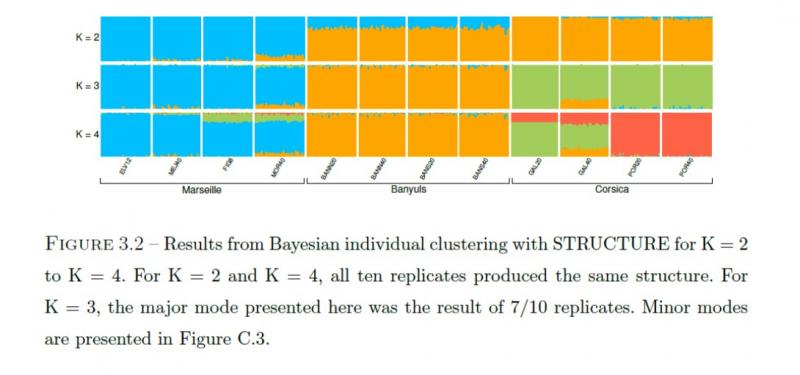Didier AURELLE (IMBE, now MIO), Anne Haguenauer (now CRIOBE)
Pierre PONTAROTTI (I2M, now IHU Méditerranée Infection)
Frédéric ZUBERER (OSU Pythéas)
Guillaume MITTA, Eve TOULZA, Jérémie VIDAL-DUPIOL (2EI at Université de Perpignan and CNRS)
Pascal ROMANS (Observatoire Océanologique de Banyuls sur Mer )
Marine PRATLONG (PhD OT-Med)
The on-going climate change is expected to have major impacts on the different components of biodiversity, from genes to ecosystems. Mediterranean marine species are already suffering from climate change, as shown by mortality events linked with thermal anomalies. This is especially true for cnidarians, which have an important ecological role in Mediterranean benthic ecosystems and are attractive species for recreational scuba-diving. Among cnidarians the red coral,Corallium rubrum, also has a direct economical value.
The main objective of the project is to understand the variability and evolution of adaptive abilities of the red coral to thermal stress.
Two complementary approaches will be developed to study these mechanisms:
i. Transcriptomic basis of thermotolerance differences : colonies from differents depths are submitted to a common thermal stress in aquarium. The stress response is evaluated just before necrosis.
ii. Genomic study of local adaptation : we look for genetic-environment associations through the identification of outlier loci with particular patterns of genetic differentiation.
This study showed that red corals have a strong genetic adaptation to thermal stress. Specific results include:
- The transcriptome of red corals at the same site of the Marseille Bay showed differential genetic expression between 5 and 40 m
- The polymorphism pattern of these individuals showed contigs (genomic sequences) potentially implicated in the response to thermal stress.
- RAD-Sequencing analyses showed that the varying thermotolerance of red coral with depth was related more to genetic than to environmental differences (experiment at 2 depths 20 m depth apart, replicated in 3 geographical regions)
- The tests of association between genetics and environment allowed the identification of candidate loci under selection but with a potentially high rate of false positive.



